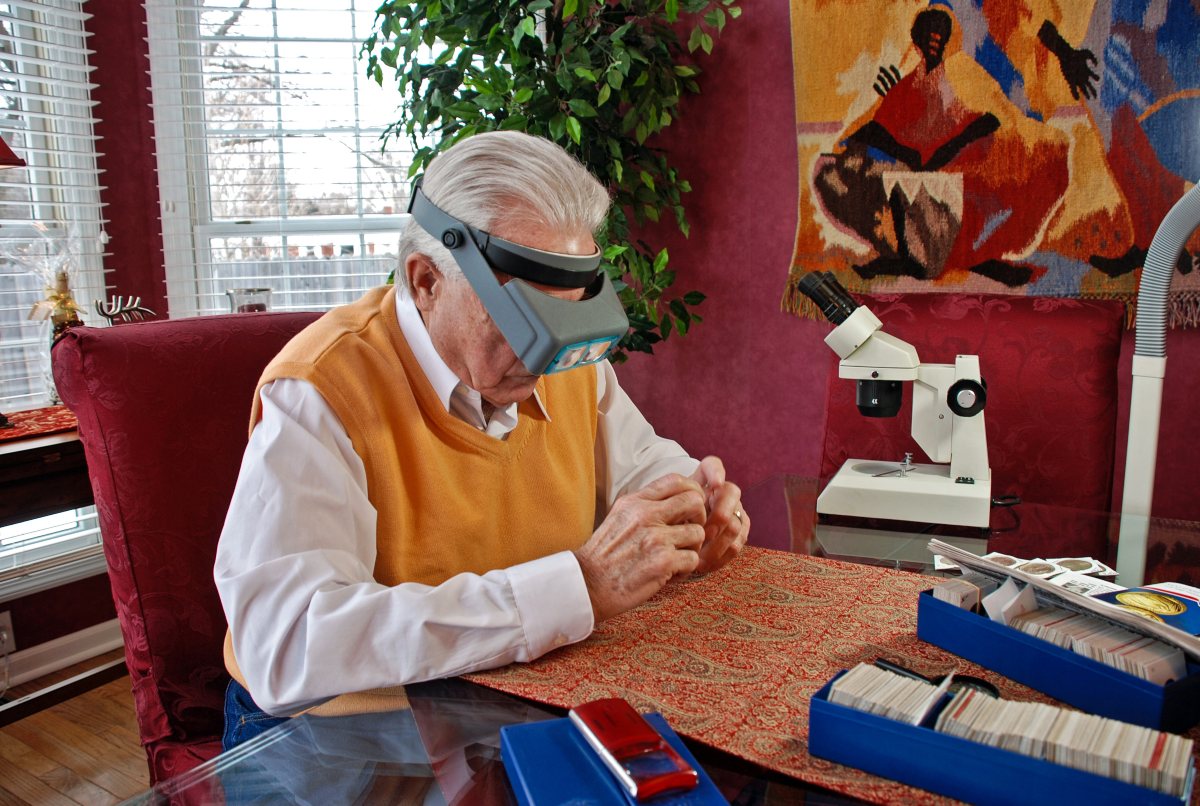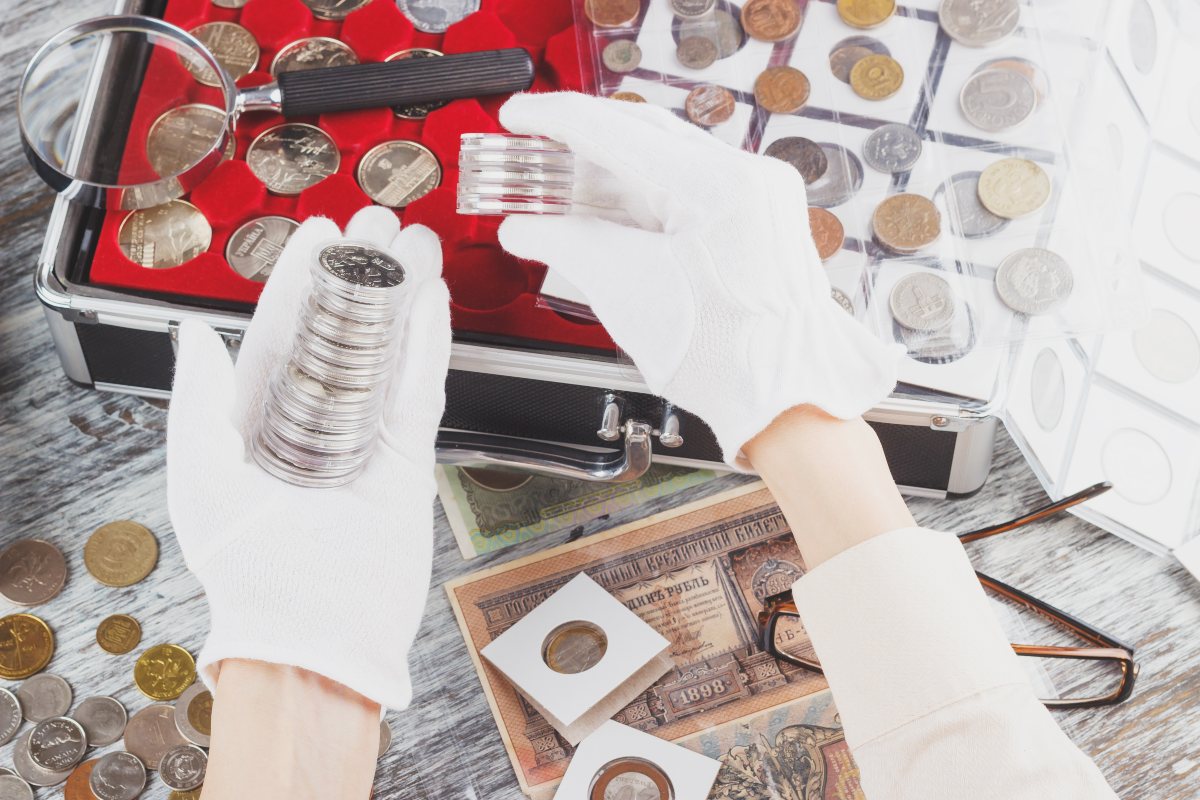One of the old-age pastimes is collecting coins. In the olden days, gifting people coins was considered a pleasure. In ancient Greece, giving people coins on special occasions, such as religious festivals, was customary.
Also, in Turkey, women are given coins on their wedding or engagement day. Coin gifting was considered a ritual that supported transitional roles. The practice resulted in people keeping the old coins.
Fast forward to now, collecting coins is a full-time investment. It’s a sure way to diversify your portfolio. Most coins gain value with age. That rustic metal you don’t have regard for could be exchanged for a massive chunk of money a few years later.
As such, there are many reasons why you should start your coin collection. Here are tips on how to get started on collecting coins:
12 Reasons Why You Should Start Your Coin Collection

1. Do Your Research
As is with every investment, it’s essential to conduct thorough research on a venture before jumping into it. It gives you some insights into the experience so that you don’t walk blindly into pitfalls. Every venture has its losses and gains. For the coin collection venture, you might get fake coins if you’re not careful. With basic knowledge of collecting coins, you can tell which coins are valuable or not.
A thorough online search could lead you to resourceful websites with much information on collecting coins. You may want to check out Infinity Coins online for all matters concerning coin collection in Idaho Falls.
Alternatively, you can gain knowledge from reading books such as the ‘Red Book.’ It’s a guide that contains the most valuable information on coin collection. You can probably ask your friendly coin dealer for a copy of this book, as they may use this as a good resource.
2. Organize Your Collection
Knowing what you’ll deal with is good as you start this new venture. There are different coins in the market, such as:
- Error coins
- Proof coins
- Uncirculated coins
- Bullion coins
- Business coins
- Ancient coins
- Commemorative coins
- Worldwide coins
All the coins have different monetary values. It’d be wise of you to organize them in denominations first. You can then sort them into their designs. Most coins experience a design change periodically, and you can notice variations in the designs, which may be worth more than ordinary coins.
3. Look For Errors
The differences in design increase the face value of a coin. You must have noticed that every time you present a coin to your dealer, they scrutinize it thoroughly. They do so to search for errors. Coins with mistakes are more valuable than perfect coins. Some factors considered errors in coins are:
- Die cracks
- Missing elements
- Difference in words
- Image edges
- Doubling
Once you get hold of a coin, you can tilt it to the sun and observe the coin keenly. You may pick some errors that could make your coin stand out and, thus, pay more in the market. Familiarize yourself with such mistakes, and you’ll get more value for your coin collections.
4. Store Your Coins Properly

Storing your coins is essential in this collection hobby or business. It’s because you’d want to avoid scratches on them. Additionally, the coins are delicate, especially the top and bottom. When handling the coins, you can wear cotton or latex gloves. If your coin is in near-mint condition, it’s more valuable. Also, properly storing your coin keeps it safe from theft.
For storage, you can use coin holders such as flips, folders, and albums. The prices vary according to professional grading and slabbing. While buying the storage materials, ensure that it won’t affect your coin’s state. The best materials for making coin storage are mylar and acid-free cardboard. Alternatively, you can hire the services of a professional to store your coins.
5. Collect To Sell
The goal of every business is to make profits. As a coin collector, you can use the element of time as an advantage to make the most profits. Search for undervalued markets and trade your coins there. However, you should be aware that even dealers can lowball you. Ensure you have the correct numbers on your coin’s value before you sell.
Just like in retail selling and buying, go with the highest bidder. Ask around for the best dealer prices and go for the most valuable one you can get. Also, work with dealers that don’t have your kind of coin. They’ll most likely give you the best offers since it’s a valuable addition to their collection.
6. Identify A Good Dealer
Learning the ropes of coin collection involves identifying the best dealers. If you’re not careful, you’ll be sold fake coins or lose your highly valued coin to strangers who pose as dealers. If you choose to transact online, you must trade cautiously, or else you’ll buy nothing. You can avoid scammers if you know how to identify genuine coins.
7. Have Your Coin Appraised
It’s essential to know the worth of your coin before trading it. Some third-party companies grade and slab your coins to get their worth. However, note that not all coins qualify for this process. You can rely on asking several buyers for their offers to get an idea of how much value your coin holds.
Also, the value of a coin can determine the type of storage. Remember, you must pay storage fees if you outsource from the companies. Again, when you take your collection to a dealer for appraisal, they’ll charge you by the hour. Following the ‘Red Book’ guidelines, you can cut costs by arranging the coins yourself.
8. Understand How Grading Works
Before you reach a selling price with your dealer, *many factors, for instance, strike and eye appeal, come into play. It’ll be helpful to be informed so that the dealer doesn’t cheat you as you deal. If you’re not well informed about grading, the dealer might give your coin a lower rating, reducing the coin’s worth. However, the same coins can be valued differently.
A good example is an 1891 O Morgan dollar. In some cases, it has sharp detail, while in others, it’s weak. An experienced dealer can tell the two apart. Also, the quality of the planchet influences its grading for copper coins.
9. Identify Mint Marks
Sometimes, the country of origin influences the value of a coin. You can tell where a coin was minted by paying attention to its mint marks. If you’re collecting US Coins, they often have their mint marks on the head side of the coin.
Contrary, coins minted in Philadelphia don’t have mint marks. It’s essential to note the locations on the mint marks as they can lower or add value to your coin. Here’s a detailed breakdown of the mint location and the mint mark:
- Carson City, CC
- Charlotte, C
- New Orleans, O
- Philadelphia, P or Nothing
- San Francisco, S
- West Point, Newyork, W
10. Collect By Theme
To gain ground in coin collection, you’d better collect the coins based on themes. For instance, you can find coin characters such as animals, people, cars, flowers, buildings, landmarks, railways, or sports. You never know when the value will go high. Some popular coin collecting themes include:
- Country collection: These collectors collect coins from different countries. It’s a long-lasting way of collecting coins since countries keep changing currencies.
- Year collection: You can focus on the year the coin was created to the present times.
- Error collection: It majors on coins with mistakes.
- Subject collection: Some coins have specific markings, for instance, ships or animals.
- Type collection: The most common example of type collection is that of coins with holes in the center. A collector can specialize in such coins.
- Composition collection: Some coins are created from a combination of precious metals. These, too, form a theme on which you can specify your collection.
- Period collection: These are the periods within which the coins were created. Some popular period collection themes are the Victorian era, Byzantine, or the Greek Period.
However, most collectors insist on having every coin for diversification.
11. Collect Coins With Genuine Rarity
Before you make your purchase, you must consider how rare a coin is. Rare coins are in high demand. Most of them are from the past, but it doesn’t mean all old coins are rare. The rare coins have unique marks. Some errors were realized way later after they were in circulation. Below is a list of rare coins:
- 1879 $4 Gold Stella
- 1913 Liberty head nickel
- 1955 doubled die Lincoln penny
- 2008-W silver eagle reverse of 2007
- 1894-S Barber dime
- Flowing Hair Dollar
12. Pick Dirt Coins
Your coin has more value if it’s in its original form. This includes dirt. Before you decide to clean your coins, you should have them appraised first. Although you might want to clean your coins to make them appealing and shiny, that shouldn’t be the case.
Cleaning a coin might reduce its value, as it may remove the natural layer called the patina, which they acquire as they age. This layer is what protects the coin from the environment. Thus, there’s no need to clean a coin. A numismatologist won’t give you a nice look if you clean the coin.
Conclusion
In the past, coin collecting was just a form of hobby or a way to give people gifts. Today, it can be another stream of revenue for seasoned coin collectors.
You can use the shared tips if you want to join the wagon. With this information, you’ll have less to worry about as you trade and collect the coins.
Read Also:
- Are Stablecoins A Good Investment?
- Short Guide To Finding The Best Place To Sell Gold Bullion Coins
- Gold Investment Guide: What Is the Best Gold IRA
















